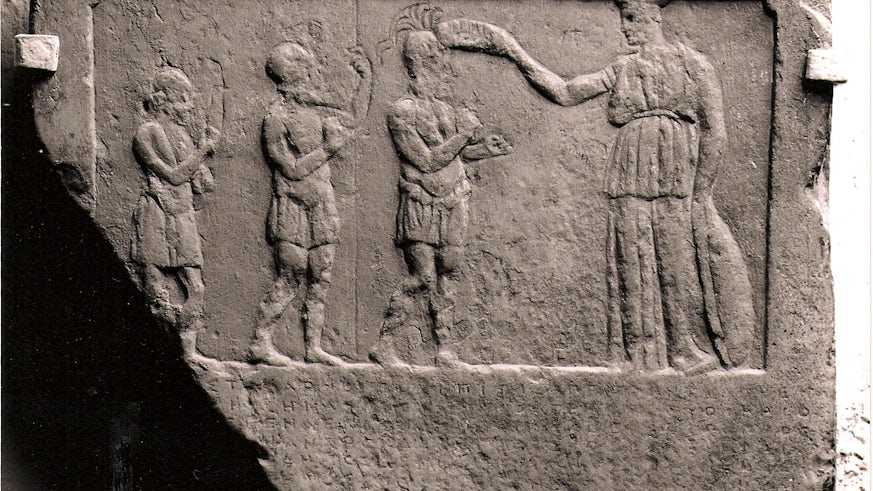Latest treasure trove of Ancient Athenian inscriptions revealed
29 September 2015

Attic Inscriptions Online (AIO) has announced the publication of over 130 new English translations of inscriptions from ancient Athens, making a total of 648 now available.
The new translations reflect the most recent scholarly work on the inscriptions and are in some cases the first English translations ever published.
Attic Inscriptions Online was launched in 2012 with the aim of broadening access to the rich treasure trove of inscriptions from Ancient Athens by publishing free online English translations with accompanying notes and supporting academic papers.
The collaborative project is led by Dr Stephen Lambert, Reader in Ancient History at Cardiff University’s School of History, Archaeology and Religion.
Since the launch the site has attracted well over 100,000 views from nearly 20,000 visitors in 128 countries around the world. The project aims eventually to publish English translations of all 20,000 Attic inscriptions.
Covering 800 years from the fifth century BC to the third century AD, the latest translations reveal a range of fascinating detail, from evidence of the tribute that funded the building of the Parthenon and other major monuments of the acropolis to Athens enforcing the adoption of its coinage, weights and measures on its allies.
Significant historic events and the organisation of classical societies are also revealed, from the text of a 3rd century BC treaty between Athens and Sparta marking the start of a rebellion against the Macedonian successors of Alexander the Great to a list of crews of triremes giving historians key evidence of how these Athenian warships were staffed.
This latest tranche of translations also reveals fascinating insight into ancient culture and mores, which still resonate today. In one first century AD poem early evidence of the moral code becoming of a doctor is revealed - namely the importance of avoiding romantic entanglements with patients.
Commenting on the release, Attic Inscriptions Online project leader Dr Stephen Lambert said: “Our latest release includes a large number of fascinating and historically important new translations. It demonstrates the importance and potential of collaboration, with scholars from Cambridge, Cardiff, Durham , Melbourne and Utrecht Universities making this tool available to scholars and students across the globe.”
View the latest Attic Inscriptions translations at their website.